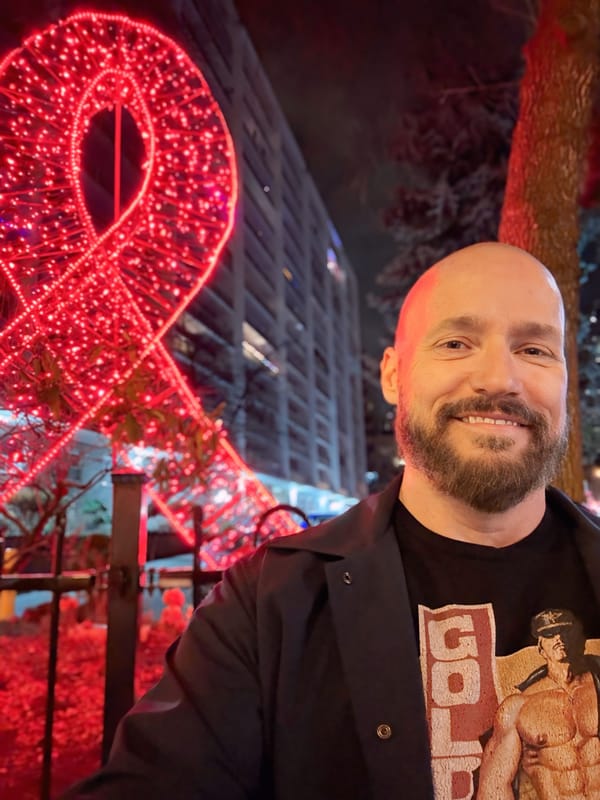HIV at a crossroads - 5 things you can do

To say there's been devastating news in public health these last few weeks would be an understatement.
40 years of research.
40 years of HIV care.
40 years of progress.
Now, all under threat.
In the United States, at least 145 grants supporting advancements in HIV care and prevention have been suddenly terminated.
Nearly $450 million of national HIV prevention funding has been withdrawn overnight.
But this isn’t just a US issue. It’s part of a wider trend — a global pulling back of support.
A new study in The Lancet found that global aid cuts by countries including the US and UK could cause more than 10 million new HIV infections and 2.9 million additional HIV-related deaths by 2030.
What is affected?
In short, these cuts to global aid and USA services affect:
- medication
- testing
- vital support services
- prevention initiatives
- scientific research
You can learn more in my last article on this subject.
The rug has been pulled out from under millions of people.
Some of the questions that might be running through people's minds:
What does this mean for me?
Will I still be able to get PrEP?
What happens if I can't afford private healthcare?
What happens to community services, testing, and support?
If you're feeling scared, angry, or helpless – please know that you are not alone.
The HIV community has always had resilience at its core
Throughout history, progress in HIV prevention and care hasn’t come from governments alone.
It’s come from people.
From community, resilience, and collective care.
From those who refused to give up when systems failed.
When healthcare access was limited, when stigma silenced, when policies let people down — it was communities who stepped in.
This moment is no different.
It’s painful.
It’s unjust.
But the HIV community has faced worse – and people affected have never stopped looking after each other.
5 things you can do
If you’re affected by these cuts — or standing in solidarity with those who are — here are a few steps you can take today:
- Check your access — Contact your healthcare provider, clinic, or local HIV organisation to ask what this means for you. Find out how these cuts may affect you, and what other options are available.
- Stay connected — Share information with your community and networks. Many people may not even know these changes have happened yet. Let’s make sure no one is left in the dark.
- Get informed — HIV organisations will continue to provide updates, advice, and resources in the weeks and months ahead. Follow them. Stay up-to-date.
- Speak up & support — If you’re able, donate to frontline HIV organisations. Write to political leaders. Share this story. The more pressure we apply, the harder it is for these decisions to be ignored.
- Take care of yourself — This news is heavy. It can trigger fear, grief, and hopelessness. Breathe. Rest if you need to. Talk to people you trust. You are part of a global community that has fought back before – and will again.

We are stronger together
More than policies or funding, it’s people who have always carried this fight forward.
This HIV community has built networks of care, resilience and hope that no government can erase.
If you’re feeling powerless today, remember:
We look after each other.
We always have.
And we always will.
One thing about humanity — when there’s a big problem, there are good people all over the world who will work tirelessly to find solutions.
Covid was proof of this.
HIV history is proof of this.
So focus on the things you can control.
Stay informed.
Speak up.
Care for each other.
Sending love and strength to each and every one of you.
❤️
♻️ Share this to help people who may be affected
Written by Hamish Noah – an HIV Advocate and Addiction Recovery Coach from London, UK.
This article also appears in Hamish's LinkedIn newsletter it's that simple – which features tips, insights and inspiration on HIV, addiction and being human.





